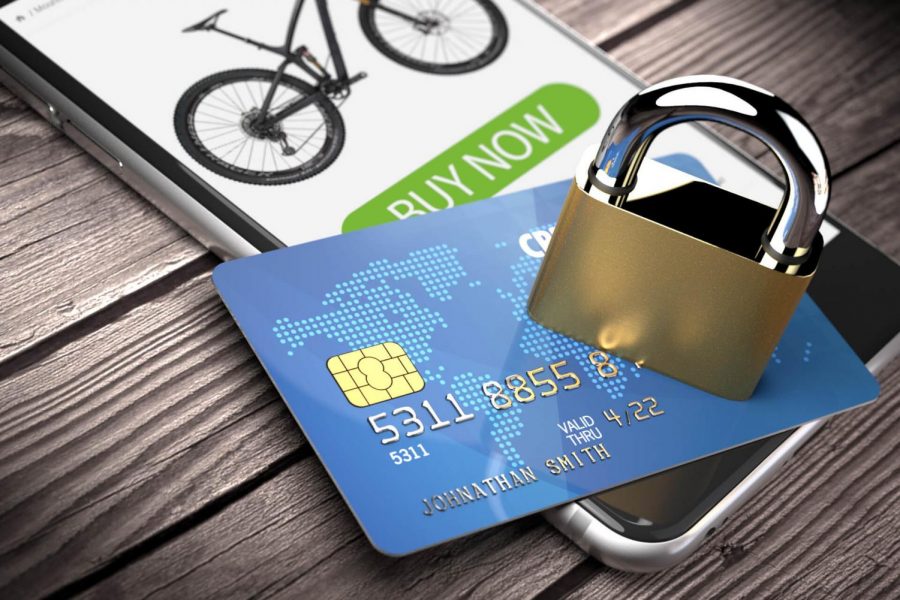Beware of Scammers
January 27, 2021
Ever since the unprecedented COVID-19 pandemic has started, many people are switching from the traditional in-store shopping to online shopping for the purpose of avoiding the contraction of the virus.
Scammers and hackers are seizing these newfound opportunities as a way to scam online shoppers by using many subtle methods, which requires purchasers to be extremely careful when receiving calls and emails from potentially fake companies.
For instance, PayPal—an American company that operates an online payment system— could be faked by hackers since they could alter the company’s name into a similar name, but with little changes that are invisible to the readers. As always, whenever there is an online transaction through PayPal, there will be an email sent towards both the sender and the receiver, notifying the payment under the official email of PayPal. Therefore, hackers could fake the email name of PayPal under the name ‘PayPa1’ or other counterfeit names that a user wouldn’t notice in a quick glance.
With this technique, the hacker can then send an email informing the card’s holder on any reasons such as an unwanted transaction from another stranger in another state or country under the name of PayPa1 without any noticeable red flags since the letter ‘l’ looks almost identical to the number ‘1.’
Upon receiving the email, the card’s holder would believe it and has taken the bait of the scam without checking the validity of the company’s email.
Furthermore, the hacker will imitate everything in the email’s content such as the transaction report under the correct format that the real PayPal would put in order to increase the legitimacy. Besides, the hacker will also insert a hidden link that would lead the user to another fraudulent website when clicking the verification button.
The fraudulent website would also look the exact same as if it was PayPal’s real website, but now, for whatever information the user puts in such as their credit card number, the hacker will be the one who is able to obtain them not PayPal.
With new valuable and secretive information being released, the hacker can then use the card freely. As a precaution, the user should immediately verify the legitimacy of the email address and confirm whether or not the transactions are being made by the user. If the transactions are not made, then check the balance to see if there are any reductions from the transactions. If not, then ignore the email.
However, if there is an accounted for reduction, contact and report the issue to the Credit Card Issuer’s Fraud Department as well as consider a fraud alert or even a credit freeze. It is imperative to not delay because the hacker will most likely have more time to purchase items or transfer all the money to their account.
Besides this technique, other scammers and hackers often send emails and text messages as well as calls involving the receiver winning some sort of prizes such as cars, iPhones, or a lottery. Although this might sound promising at first, people should still use their rationale by confirming whether or not they have participated in this event or not. If not, then it is possible that a scam has occurred and people should just ignore it.
If the person is fooled into thinking he or she has won a prize, the scammer usually tries to get the person to wire money for “taxes” or “fees.” They may also try to get the victim to provide them with a bank account number, which they will then clean out.
Another trick is to send the winner a bogus “check” and ask the winner to send money back to cover expenses. It is only after victims have sent their own money that they discover the check they received is counterfeit.
There are numerous ways to prevent this from occurring such as identifying the country that the caller is from; if they are from a foreign country, then it is possible to raise some red flags.
In addition, when reading the emails, it is necessary to be on the lookout for poor grammar language. Scammers do this on purpose to avoid sending emails that would eventually end up in the receiver’s spam due to how the spam filters emails that contain “scam words.”
Everyone should be cautious when receiving these kinds of suspicious emails and are encouraged to report these contact information to the Federal Trade Commission (FTC). Therefore, whenever there is something you are not aware of, you should trust your guts if you feel suspicious because in reality, it probably is!

